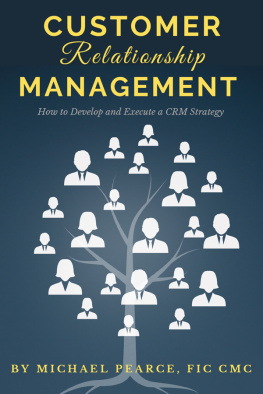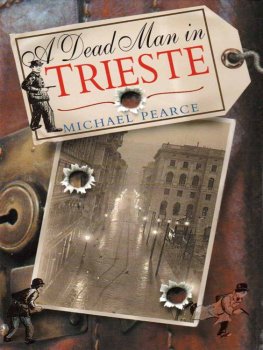Michael Pearce - The Mamur Zapt and the return of the Carpet
Here you can read online Michael Pearce - The Mamur Zapt and the return of the Carpet full text of the book (entire story) in english for free. Download pdf and epub, get meaning, cover and reviews about this ebook. genre: Detective and thriller. Description of the work, (preface) as well as reviews are available. Best literature library LitArk.com created for fans of good reading and offers a wide selection of genres:
Romance novel
Science fiction
Adventure
Detective
Science
History
Home and family
Prose
Art
Politics
Computer
Non-fiction
Religion
Business
Children
Humor
Choose a favorite category and find really read worthwhile books. Enjoy immersion in the world of imagination, feel the emotions of the characters or learn something new for yourself, make an fascinating discovery.

- Book:The Mamur Zapt and the return of the Carpet
- Author:
- Genre:
- Rating:3 / 5
- Favourites:Add to favourites
- Your mark:
- 60
- 1
- 2
- 3
- 4
- 5
The Mamur Zapt and the return of the Carpet: summary, description and annotation
We offer to read an annotation, description, summary or preface (depends on what the author of the book "The Mamur Zapt and the return of the Carpet" wrote himself). If you haven't found the necessary information about the book — write in the comments, we will try to find it.
The Mamur Zapt and the return of the Carpet — read online for free the complete book (whole text) full work
Below is the text of the book, divided by pages. System saving the place of the last page read, allows you to conveniently read the book "The Mamur Zapt and the return of the Carpet" online for free, without having to search again every time where you left off. Put a bookmark, and you can go to the page where you finished reading at any time.
Font size:
Interval:
Bookmark:
Michael Pearce
The Mamur Zapt and the return of the Carpet
AUTHORS NOTE
Cairo, 1908. The heyday-or was it just past the heyday? of indirect British rule. Thirty years earlier the profligate Ismail Pasha, Khedive of Egypt, had brought his country to the edge of bankruptcy. The Western powers had stepped in but at a price, and their yoke bore hard. In 1881 Egyptian unrest became open rebellion. To safeguard its financial interests Britain sent in an army, crushed the rebels and restored the Khedive, but from now on the Khedive governed in name only; the real ruler of Egypt was Cromer, the British Agent and Consul-General. A complex apparatus of control was introduced. There were British advisers at the top of all the major ministries; the commander-in-chief of the Egyptian Army, the Sirdar, was British; so were the inspector-general of prisons, the commandants of the two key police forces of Cairo and Alexandria, and of course the Mamur Zapt, the head of the Political CID-the Secret Police.
But by 1908 British rule was not as firmly based as it looked. Other powers were growing jealous. France had cultural links with Egypt which dated back to Napoleon and had never forgiven the British for staying on after crushing the Arabi rebellion. Many of Egypts criminal procedures were based upon the Code Napoleon, and the judicial system in general followed French lines. This meant that investigation and prosecution were the responsibility not of the police but of the Department of Prosecutions of the Ministry of Justice; that is, of the Parquet.
Turkey was also jealous, for Egypt was still constitutionally a province of the Ottoman Empire, and the Khedive in theory owed allegiance to the Sultan of Istanbul.
And all the time the underground forces of Egyptian Nationalism were growing in strength and now, in 1908, were just beginning to assert themselves.
Egypt was a country of many potential masters. It had four completing legal systems, three principal languages and several religions, apart from Islam. It had many, many nationalities. It was a country ripe with ambiguities. A country bright with sunlight and dark with shadows. And in the shadows, among the ambiguities, worked the Mamur Zapt.
In this story I have tried to stay close to fact. The streets are those of Cairo in 1908. The terrorist clubs were a feature of the period, too. There really was a National newspaper called al Liwa and in 1908 Kitcheners famous screw-gun battery really did accompany the Return of the Carpet. There was even a Mamur Zapt, although perhaps he was not quite like this one.
CHAPTER 1
The Mamur Zapt was sitting in his office one morning when his orderly, Yussuf, burst into the room.
Come quickly, effendi! he said. Bimbashi McPhee wants you at once. At once! Nuri Pasha has been killed!
This was an exaggeration, for the attempt to assassinate the veteran politician had not succeeded; but Yussuf was not one for pedestrian detail.
However, along the corridor Owen could hear the assistant commandants voice raised critically, so he put a paperweight on the estimates to prevent them from being blown all over the office by the fan, and rose reluctantly to his feet.
There was an Egyptian in McPhees room. He was short and plump and apparently very agitated. McPhee was pouring him a glass of water, which he took with effusive thanks and much mopping of his brow. From behind the silk handkerchief steady brown eyes registered Owens arrival.
Ah! said McPhee, catching sight of Owen as he turned: Captain Cadwallader Owen.
This, too, was an exaggeration. A romantic Welsh mother had insisted on preserving a remote family connection through the middle name, and Owen had once made the mistake of signing his name in full in McPhees presence. The Scotsman, another romantic, had ever afterwards insisted on using both barrels.
Do you know Fakhri Bey? No?
They shook hands.
Fakhri Bey was passing when it happened.
I was in an arabeah, the Egyptian explained. There was nothing I could do. So I told the driver to drive on and came straight here.
Im very glad you did, said McPhee. Well get there right away.
He picked up his sun helmet.
In fact, if youll excuse us-
Of course. Of course, the other protested.
They set off down the corridor.
You dont want me, do you? asked Owen.
Normally the Mamur Zapt, as head of the Political Branch, did not reckon to concern himself with routine killings.
Certainly I do," said McPhee over his shoulder.
Owen would have preferred to have carried on with the estimates. They were not especially complex but required a certain attention, and he had set aside the morning for that purpose. His predecessor-but-one had been dismissed for corruption and Owen was sensitive on financial matters.
However, he collected his helmet and joined McPhee at the front of the building. The large square of the Bab el Khalk was empty of transport except for one carriage which Fakhri Bey was just getting into.
He stopped as he saw them.
You would be very welcome to share my arabeah, he said.
May we? said McPhee. There doesnt seem to be any other. It would be taking you back-
Not at all, said Fakhri. It would be a pleasure.
The carriage was one of those with two horses and could take three passengers at a pinch. McPhee and Owen wedged themselves in around Fakhri, and the driver, after a great display of urgency, managed to get the horses going at a steady amble along the broad thoroughfare of the Sharia Mohammed Ali.
And now, said Owen, "perhaps you could tell me exactly rcjiat happened where.
"Nuri Pasha was shot," said Fakhri. It was dreadful. I am so sorry. He was a friend of mine, you know, he said, glancing sideways at Owen.
A good chap, said McPhee supportively, but then McPhee considered many people to be good chaps whom Owen knew to be consummate rogues.
And where did all this happen? he asked.
In the Place de lOpera, said Fakhri, right in front of my eyes. I could not believe it. I could not believe it.
You actually saw the shooting? asked Owen, putting a heavy accent, and not too sceptical a one he hoped, on the word saw. Yes, said Fakhri. Yes, I did.
He hesitated.
Or, at least, I thought I did. I was sure I did.
Again the sidelong glance at Owen.
Now I am not so sure, he said.
Come, said McPhee, sympathetic as usual. You certainly did. You told me all about it.
Yes, said Fakhri. I know. And I told you what I thought I saw. But when Captain Car- Fakhri mumbled a bit -Owen asked me in that sharp way of his and I try to recall detail, what seemed clear suddenly becomes misty.
Well, said Owen, brightening, thats a start anyway.
The usual problem with Egyptian witnesses was not that they could not recall but that they recalled only too well.
I expect youre used to this, said Fakhri. The fallibility of witnesses? My legal friends, without exception, assure me that eyewitnesses are not to be trusted.
Its a funny business, said Owen, what you see and what you dont see.
I thought I saw. Clearly.
Perhaps you did. Start again. Where were you when all this was happening?
In an arabeah.
Which was-precisely-where?
I had come down the Sharia el Maghrabi. I was just crossing the Place de lOpera.
Past the statue?
The statue of Ibrahim Pasha, the famous Egyptian general who had led his army to within a hundred miles of Istanbul, was a well-known Cairo landmark.
Right by the statue. I was about to go down the side of the Ezbekiyeh Gardens.
Fine. And you saw?
I saw Nuri Pasha. I think he had just come out of the Hotel Continental. He walked right out into the Place, looking for his arabeah. I think.
About how far from you?
Font size:
Interval:
Bookmark:
Similar books «The Mamur Zapt and the return of the Carpet»
Look at similar books to The Mamur Zapt and the return of the Carpet. We have selected literature similar in name and meaning in the hope of providing readers with more options to find new, interesting, not yet read works.
Discussion, reviews of the book The Mamur Zapt and the return of the Carpet and just readers' own opinions. Leave your comments, write what you think about the work, its meaning or the main characters. Specify what exactly you liked and what you didn't like, and why you think so.


